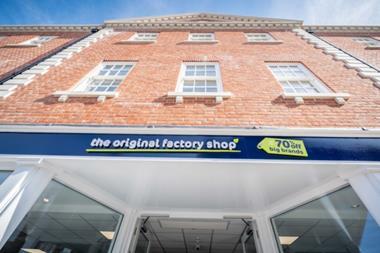Kingfisher chief executive Ian Cheshire has insisted Brits have not fallen out of love with DIY after reporting a first quarter 4.2% like-for-like decline across the group.
The DIY giant’s weak trading figures, which followed its first profit fall in five years last year, prompted some analysts to speculate that Brits’ love affair with DIY was coming to an end as they increasingly opt for the do-it-for-me model.
Cantor Fitzgerald analyst Kate Calvert said: “In the UK, underlying DIY sales have been in decline over the last decade as there is a marked shift from DIY to DFM.”
Conlumino managing director Neil Saunders said Kingfisher faces a “structural” challenge because the consumer interest in DIY is “waning”. “Consumers look unfavourably on DIY, either because they lack the skills to undertake various tasks or they simply lack the inclination to get involved,” he said.
However, Cheshire maintained: “Do I read [the first quarter sales decline] as a pattern for the year? No, when the sun came out we got the numbers. I don’t think the data is there to make that [structural] claim.
“I think what is happening is DIY spend has been suppressed because first and second time buyers haven’t got on the market. The idea that there is something structural going on, I wouldn’t buy into it.”
Cheshire said he expects the housing market – critical to the fortunes of home retailers - to improve this year, partly as a result of Government initiatives such as the Help to Buy scheme, and remained upbeat on the outlook. “Actually probably for the first time it feels like this year is going to be better,” said Cheshire.
But he added that any uptick in the housing market would flow through to the DIY sector slowly. “The first people to benefit are home builders, the second people are the trade and then we’re third in the queue and it’s probably six months away. We’re not seeing that housing market yet but it does feel like that’s where it’s going to go.”
The weather also had a big impact on Kingfisher’s sales, said Cheshire. In the first week of April like-for-likes plummeted 15% due to the wintery conditions, and bounced back to +15% in the last week as more spring like weather emerged.
“The weather was such a big swing, going from a really good March last year to really bad this year,” he said. “You don’t go from plus 15 to minus 15 without something [else] happening.”
Cheshire added that B&Q was making “decent progress” on its ‘right-sizing’ programme to slim down some of its larger stores by sub-letting to other retailers.
He said that 15 stores were “in solicitors’ hands” and were waiting on planning approval.
“If we get all these away we will be doing deals on 4% of our space so that’s a pretty decent start,” he said. “Then we’ll find the next 20 stores.”
The 15 stores include the deal it did with Asda last year on its store in Belvedere, south London, as well as two deals with Morrisons in both Wigan and Luton, where the grocer has taken about half of B&Q’s 100,000 sq ft space in both stores.
Cheshire has previously said that Kingfisher could make the same money with 20% less space across the portfolio, and is aiming to downsize further stores.
























No comments yet